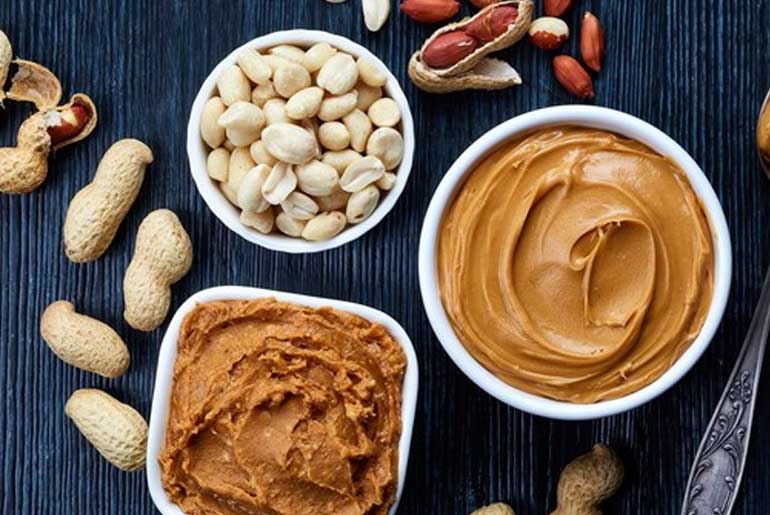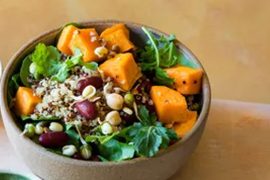As summer reaches its peak and the Olympic Games approach, it’s an ideal time to emphasize healthy eating and exercise, especially with fall and the start of high school and college sports on the horizon. The Peanut Institute has shared research findings highlighting the benefits of peanuts for various groups, including weekend warriors, student athletes, and individuals aiming to enhance their physical fitness. The studies reveal that peanut consumption can promote gains in lean body mass, support muscle growth, boost endurance, and aid in weight management, making peanuts a valuable addition to a fitness-focused diet.
“Just a small amount of peanuts or peanut butter incorporated into a daily diet can have a significant impact,” states Dr. Samara Sterling, a nutrition scientist and research director for The Peanut Institute. “Peanuts are loaded with 19 vitamins and minerals and can be eaten before or after a workout to deliver energy in advance or aid muscle recovery afterwards. Plus, they’re a convenient, on-the-go snack since they’re portable and inexpensive.”
Lean Body Mass
A 2024 study published in the journal Medicine & Science in Sports & Exercise found that athletes who consumed peanuts and peanut butter in conjunction with resistance training experienced an improvement in lean body mass1.
“While the goal of some active individuals is to gain body mass to improve physical performance or better match opponents’ size, many are nervous about adding calories because they don’t want to end up with excess body fat,” states Dr. Enette Larson-Meyer, PhD, RD, CSSD, FACSM, professor of Human Foods Nutrition and Exercise at Virginia Tech and senior author of the study. “Our study results showed that peanut and peanut butter may be particularly beneficial in ensuring more of the weight gain is lean body mass.”
Muscle Growth
A study conducted in 2021 by Auburn University showed that older, untrained individuals who included peanut powder in their resistance training regimen experienced a significant improvement in muscle growth and strength over a 12-week period compared to the control group2. Peanuts and peanut powder are rich sources of the amino acid leucine, which supports muscle building and repair3.
“This study suggests that pairing resistance training with supplemental peanut powder may be an effective plant-based protein solution to meet protein needs and perhaps slow or prevent age-related loss of muscle in older adults,” says Dr. Roberts, a co-principal investigator on the study from Auburn University in the School of Kinesiology.
Increased Endurance
Two different research projects identified a link between peanut consumption and improved endurance.
A 2022 study found that eating 30 grams of peanuts with skins before prolonged exercise improved endurance performance and significantly improved workload in the endurance test4.
A 2023 study published in the peer-reviewed journal Nutrients found that the proteins in peanuts increase endurance and reduce fatigue after exercise by lowering oxidative stress5. Oxidative stress happens when harmful molecules, called free radicals, build up in the body faster than it can get rid of them. This can damage cells and lead to aging and diseases.
Weight Management
Other studies have found that eating peanuts and peanut butter regularly does not lead to total weight gain6. One possible reason is that peanuts promote satiety7. Peanuts are high in three macronutrients – protein, fiber and healthy monounsaturated and polyunsaturated fats – that can deliver a feeling of fullness. Peanut consumption has also been associated with a reduced risk of long-term obesity8, 9.
Research conducted by the University of South Australia and published online in Nutrients found daily consumption of lightly salted peanuts twice a day before meals led to weight loss, lowered blood pressure and improved fasting glucose levels10.
“Foods that are high in protein and fiber deliver a feeling of fullness that can help reduce the urge to overeat. A one ounce serving delivers seven grams of protein and nearly three grams of fiber, making it a smart food choice,” states Sterling. “In the University of South Australia research, the peanut-enriched group was getting approximately an extra 15 grams of protein just from their consumption of peanuts and, despite the extra calories, the control group lost weight.”
For more health news, visit PeanutInstitute.com or follow Facebook, Twitter, Instagram, LinkedIn and Pinterest.
Based in Albany, Ga., The Peanut Institute is a non-profit organization supporting nutrition research and developing educational programs to encourage healthful lifestyles that include peanuts and peanut products. The Peanut Institute pursues its mission through research programs, educational initiatives and the promotion of healthful lifestyles to consumers of all ages. As an independent forum, The Peanut Institute is uniquely positioned to work with all segments of the food industry, the research community, academia, consumer organizations and governmental institutions.
Disclaimer:
The information contained in this article is for educational and informational purposes only and is not intended as a health advice. We would ask you to consult a qualified professional or medical expert to gain additional knowledge before you choose to consume any product or perform any exercise.








